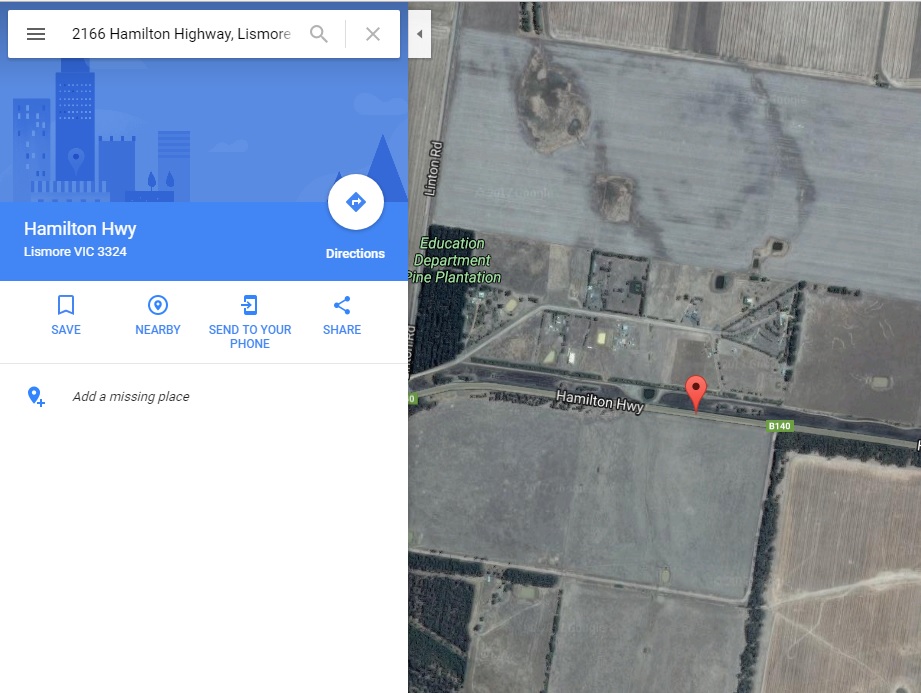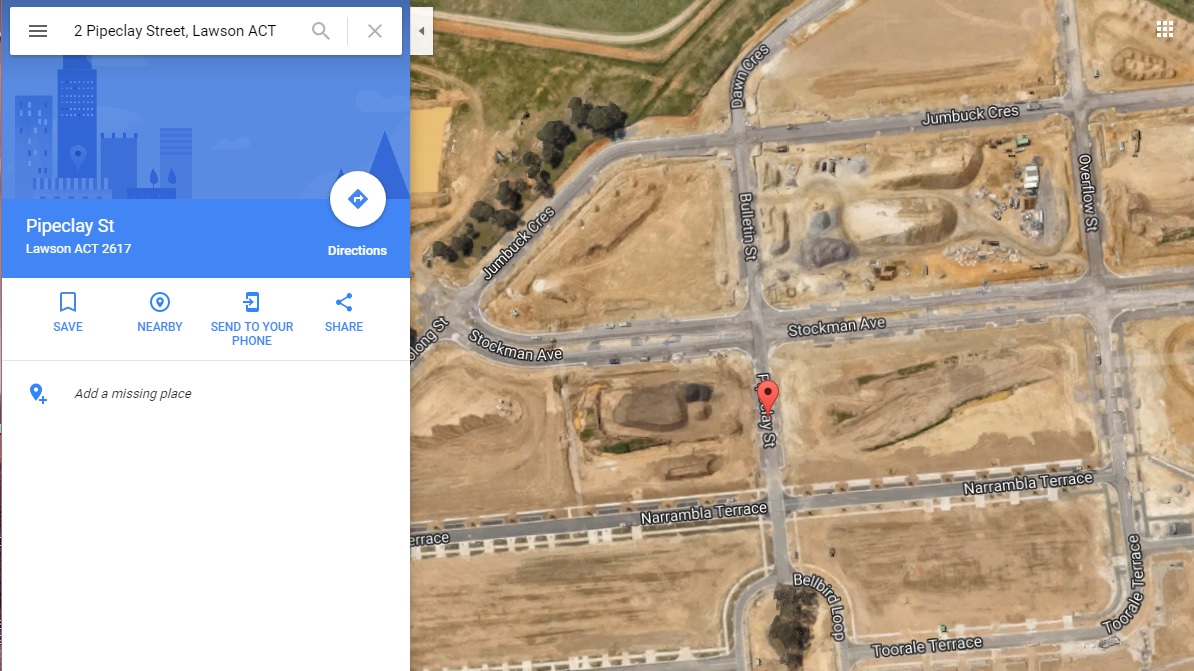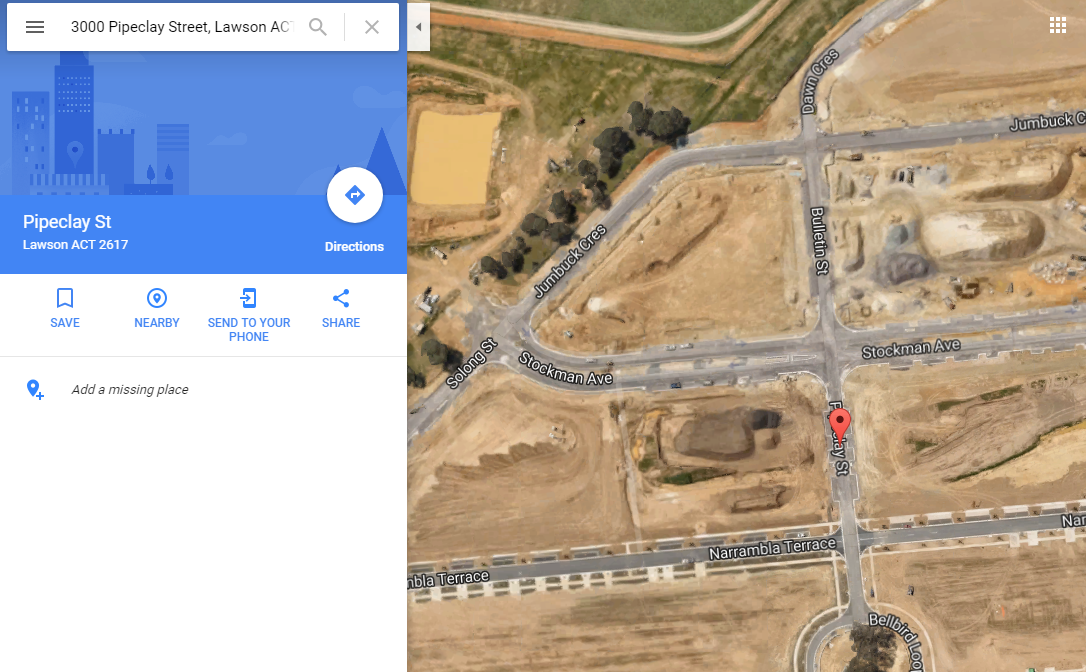Google. You would be hard placed to find someone who hasn’t heard of them. They are a household name around the world and have even become part of our everyday language. I’m sure we’ve all said, “Hang on – I’ll just google it” for example.
Whilst they are still the most popular internet search engine on the planet and have some amazing tools, recently they’ve been expanding into the address auto-complete market as a supplier for website forms, so we are often questioned as to why our solutions are better.
When talking about the differences between DataTools’ Address Validation solutions and Google’s API we often hear about these common myths.
Myth 1. Google data is universal and complete
Because of the rate at which they update their data, Google has some obvious blind spots. Romley Road, Armstrong Creek near Geelong in Victoria is an example of an entire road that can’t be found using Google’s address search (correct at time of writing).
The worldwide coverage presented by Google maps doesn’t necessarily produce good quality addresses either.
For example, 9 Hamilton Ave Surfers Paradise is the address for Q1 Tower on the Gold Coast – the tallest building in Australia. Google will find it, but only gives an address for the entire building. However, there are over 550 unique addresses within the building. How will the delivery company know which one of these addresses to leave the parcel with?
This problem is replicated across Australia and New Zealand with any office and apartment blocks. Simply finding the building address isn’t detailed enough for deliveries.
DataTools uses address data direct from official address sources such as Australia Post, New Zealand Post, Canada Post, Royal Mail, etc. We publish updates and changes to our service every quarter to make sure you have the most up to date records available.
Myth 2. Google validates addresses for delivery
Google maps is primarily a geolocation service, designed to plot places on their maps, not designed as an address validator. Ultimately, this means that Google is able to plot locations that are not valid, deliverable addresses.
For example, Google maps will happily locate ‘2166 Hamilton Highway Lismore VIC 3324’
If you take a quick look though you will quickly see that there are no buildings or infrastructure at all at this “address” so no mail would ever be delivered to it. However, without actually looking each address up individually – how would you know if the address presented is deliverable?
Another example – Google “finds” the address 2 Pipeclay St Lawson ACT for us….
but it also “finds” 3000 Pipeclay St Lawson ACT in the EXACT same location. Given the length of the small block – this is highly unlikely.
That is because Google tries to provide a relatively good estimation of where an address would be on a map. It cannot tell you what the address is, or more importantly – format it correctly.
DataTools’ solutions will only ever retrieve valid delivery addresses that are formatted correctly.
Myth 3. Google is unique in offering auto-suggest results for addresses
Not true. There are many other providers of addressing services where you can begin typing and matching addresses are found.
DataTools’ own address validation solutions have been providing this option since 2010 and we’ve been upgrading it constantly ever since. This functionality allows users to search on any part of an address and copes with misspellings and typos (like extra spaces or missing characters).
The data returned is verified against delivery point data from official sources such as Australia Post, New Zealand Post, Canada Post, Royal Mail in the UK, etc.
Myth 4. It’s completely free
Depends on your usage and the type of application. It can be free if you have a public site and only need to verify low volumes of addresses. There is a Premium Plan for customers who require an SLA and who expect to process large volumes; each autocomplete API request consumes 0.1 credits. It’s also worth noting that you only get access to technical support when you’re a paying customer. Information correct at time of writing – it could all change.
Also – just consider, as a large search engine that is constantly using ‘big data’ to serve up appropriate advertising to its users – what happens with all the information collected via your forms?
________________________________________
Basically, if an accurate, deliverable address is important to the efficiency of your processes then Google will not deliver the goods (excuse the pun).
To learn more, call our Data Specialists on (02) 9687 4666 or via Contact Us.




